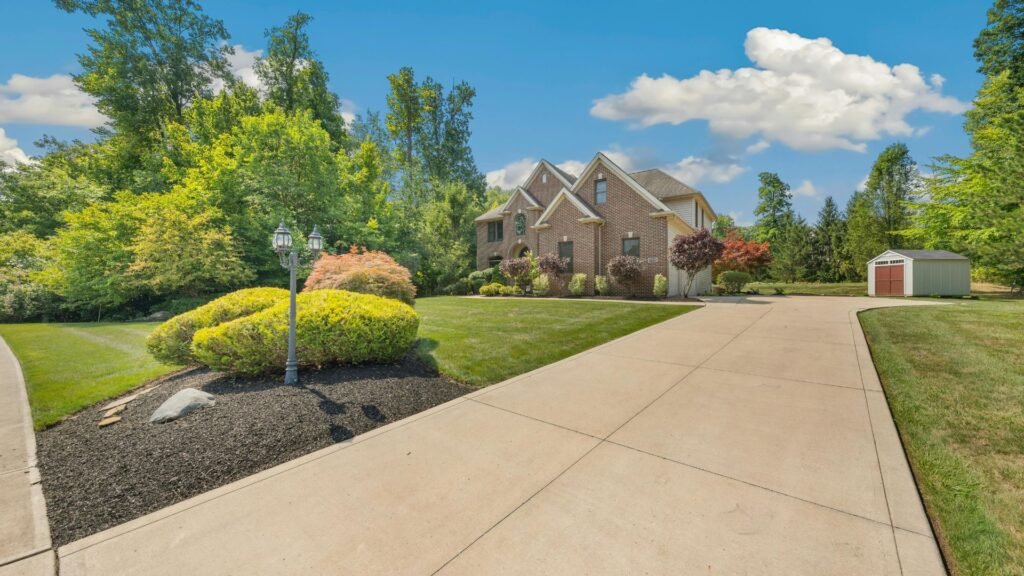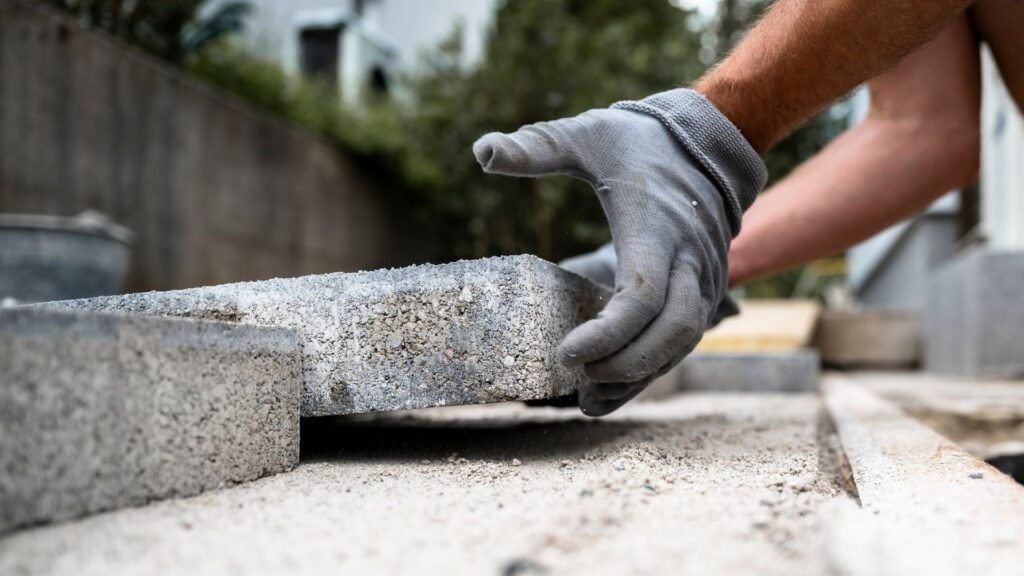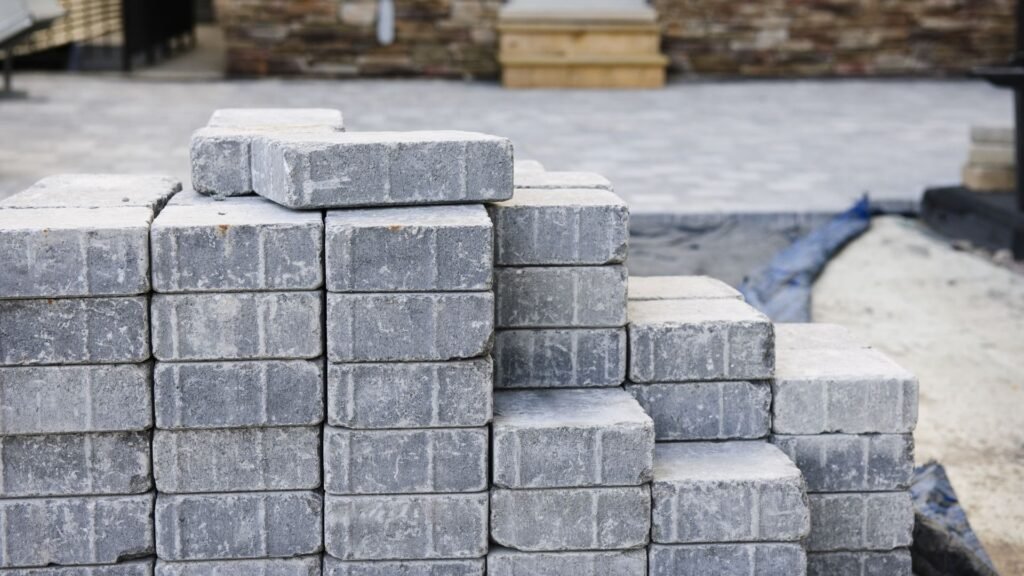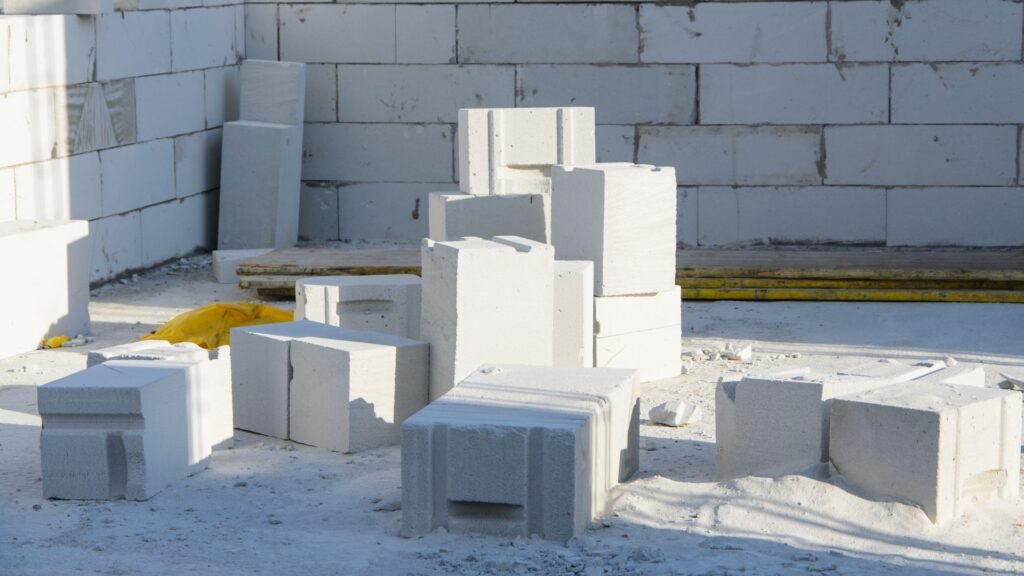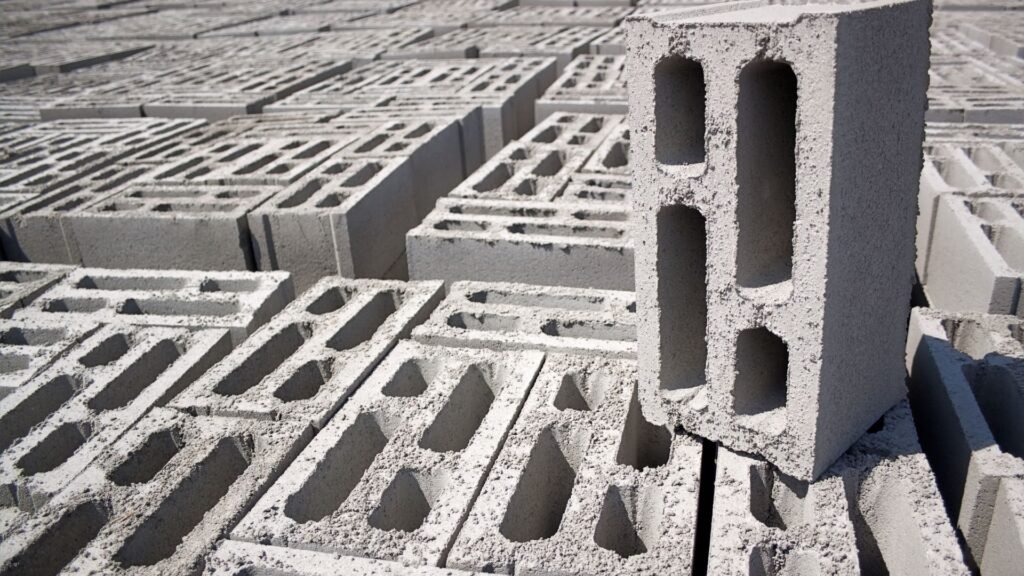Welcome to your go-to guide on concrete driveway costs in New Zealand. Whether you’re building a new home or upgrading your current driveway, understanding the price of concrete work can help you plan better and avoid surprise costs. Concrete driveways are a popular choice for Kiwi homeowners thanks to their durability, low maintenance, and clean finish, but how much should you expect to pay in 2025? In this article, we’ll break down average prices, what affects the cost, hidden fees to watch for, and how you can save money without sacrificing quality.
As of 2025, a concrete driveway in NZ typically costs between $120 and $200 per square metre, depending on the type of finish. Plain concrete starts around $120/m², while coloured and exposed aggregate options range from $150 to $200/m². Final pricing also depends on site conditions, design, and labour.
Table of Contents
What Affects The Cost Of A Concrete Driveway In NZ?
Understanding what drives the cost of a concrete driveway in New Zealand helps you budget smarter and avoid surprise expenses. Whether you’re planning a new installation or replacing an old surface, several factors come into play. Each one influences the final price you’ll pay, from the size of the project to where you live.
Here’s a detailed breakdown of what affects concrete driveway pricing in NZ:
Size And Layout (Single Vs Double Driveway)
The bigger the driveway, the higher the total cost. A single-car driveway is more affordable than a double-car option due to the amount of concrete, preparation, and labour involved. For example:
- A single driveway may require around 20–30 square metres.
- A double driveway could need 40–60 square metres or more.
Larger areas may get a slightly lower rate per square metre, but the overall cost still increases because of additional materials and time.
Thickness And Type Of Concrete
Standard concrete driveways in NZ are usually 100mm thick, which suits most residential vehicles. If you need to support heavier vehicles or plan to install a reinforced surface, the thickness may increase to 125mm or 150mm, raising material and labour costs.
Concrete type also matters. Your options include:
- Plain concrete – the most affordable and simple.
- High-strength mixes – more durable and better for load-bearing driveways.
- Reinforced concrete – includes mesh or steel bars for extra support.
Choosing the right concrete depends on what you plan to park and the long-term durability you expect.
Site Preparation (Flat Vs Sloped, Accessibility)
The condition and shape of your site have a major impact on pricing. Flat, easy-to-access areas cost less to work with. On the other hand:
- Sloped sites may require excavation and retaining structures.
- Poor soil quality can lead to extra preparation to ensure the base is stable.
- Limited access for concrete trucks or equipment might require manual labour, which increases costs.
Good site prep is key to preventing future problems like cracking or water pooling.
Decorative Options (Coloured, Stamped, Exposed Aggregate)
If you want your driveway to stand out, you’ll pay more for decorative finishes. These include:
- Coloured concrete – pigments added to create a custom colour.
- Stamped concrete – patterns stamped into the surface for a textured look.
- Exposed aggregate – a polished finish that reveals stones within the mix.
While these options boost street appeal, they also raise the price by $30–$80 per square metre , depending on the design and finish.
These upgrades are popular for homeowners who want a modern, clean look that matches their landscaping or home design.
Labour And Location (Urban Vs Regional Pricing)
Where you live in NZ affects how much you’ll pay for concrete driveway installation. Labour rates vary between regions:
- Urban areas like Auckland or Wellington tend to have higher costs due to demand, competition, and traffic.
- Regional towns may offer slightly lower labour costs, but material delivery fees can offset savings.
Also, working with skilled, licensed contractors often comes at a premium, but it ensures proper installation that lasts decades.
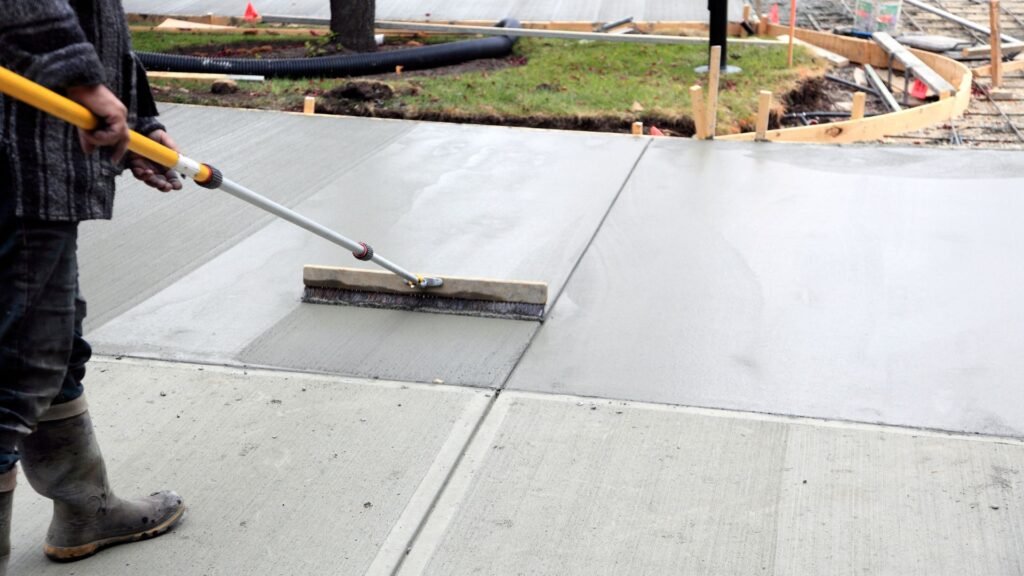
Average Concrete Driveway Cost In NZ (2025 Data)
If you’re planning a new driveway in 2025, it’s smart to know what concrete actually costs in New Zealand. Whether you’re budgeting for a new build or replacing an old surface, having accurate pricing helps you make confident decisions and avoid budget blowouts.
Concrete remains one of the most popular driveway materials in NZ because of its durability and clean, modern look. But not all concrete is priced the same. The finish you choose, the size of your driveway, and your location can all affect what you’ll pay.
Here’s a detailed breakdown of average costs based on 2025 rates:
- Plain Concrete: $120–$160 per m²
- Coloured Concrete: $130–$180 per m²
- Exposed Aggregate: $150–$200 per m²
These price ranges include materials and labour but may not cover extras like site prep, drainage, or decorative borders.
Concrete Driveway Cost By Size
To give you a clearer idea, here’s a cost estimate based on different driveway sizes. These are approximate figures and may vary based on your region, contractor, and specific site conditions.
Small Driveway (20m²):
- Plain Concrete: $2,400 – $3,200
- Coloured Concrete: $2,600 – $3,600
- Exposed Aggregate: $3,000 – $4,000
Medium Driveway (40m²):
- Plain Concrete: $4,800 – $6,400
- Coloured Concrete: $5,200 – $7,200
- Exposed Aggregate: $6,000 – $8,000
Large Driveway (60m²+):
- Plain Concrete: $7,200 – $9,600
- Coloured Concrete: $7,800 – $10,800
- Exposed Aggregate: $9,000 – $12,000
Key Factors Behind Price Differences
- Labour rates vary between regions, urban areas like Auckland and Wellington often cost more.
- Site access matters. Tight or sloped sites require more time and prep.
- Decorative finishes such as coloured or exposed aggregate require extra materials and labour.
- Thickness and reinforcement affect the structural strength and cost, thicker slabs with steel mesh cost more but last longer.
When comparing quotes, make sure you’re looking at itemised costs. Some contractors may include extras like sealing, while others charge separately.
Concrete driveway prices in NZ are an investment, but they pay off long-term through low maintenance and long-lasting results. Always compare multiple quotes and ask about what’s included to get the best value for your budget.
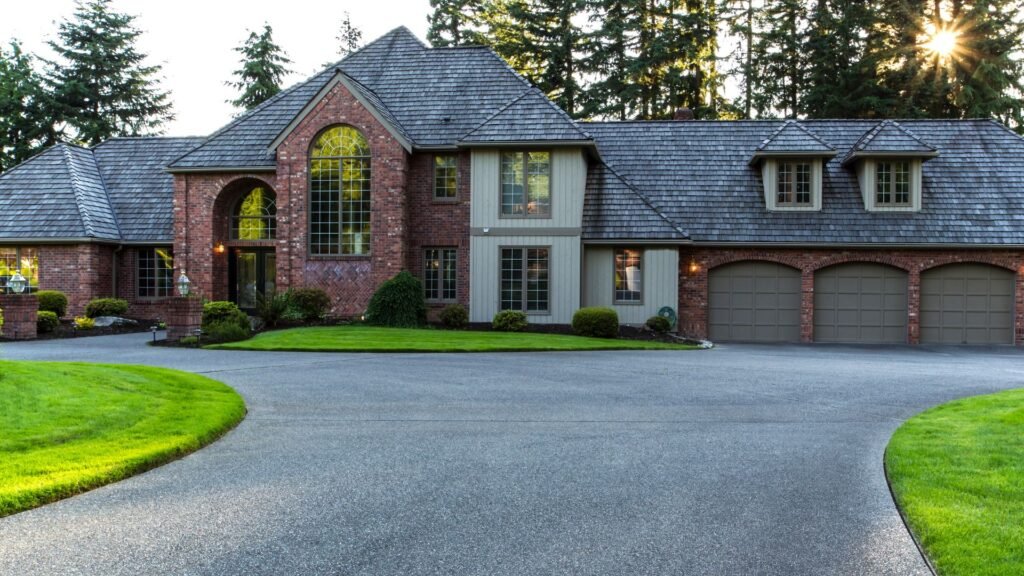
Concrete Driveway Vs Other Materials: What’s Best For NZ Homes?
Choosing the right driveway material is a big decision, especially if you’re aiming for long-term value, visual appeal, and minimal upkeep. In New Zealand, concrete driveways are a top choice, but how do they compare to asphalt, pavers, and gravel?
Let’s break it down by cost, durability, maintenance, and appearance to help you decide what’s right for your home.
Concrete Driveways
- Cost:
Concrete driveways in NZ typically cost between $120 and $200 per square metre, depending on the finish (plain, coloured, or exposed aggregate). - Durability:
Concrete is extremely durable, with a lifespan of 25–30 years or more when properly installed and maintained. It handles heavy vehicles and tough weather conditions well. - Maintenance:
Low maintenance. Occasional cleaning and sealing every few years will keep it looking fresh and prevent cracks or stains. - Appearance:
Offers a clean, modern look. You can customise it with different colours, textures, and patterns. Options like exposed aggregate and stamped finishes add more curb appeal.
Asphalt Driveways
- Cost:
Generally cheaper upfront, with prices ranging from $90 to $140 per square metre. Installation is faster and often used in budget-conscious projects. - Durability:
Asphalt driveways last around 15–20 years. They are flexible and less likely to crack under pressure, but wear out faster than concrete. - Maintenance:
Requires more upkeep. You’ll need to seal it every 3–5 years, and minor cracks may need patching as the surface ages. - Appearance:
Dark, sleek, and smooth, though it doesn’t offer much in the way of design options. It can fade over time, especially under strong sun exposure.
Paver Driveways
- Cost:
This is one of the more premium options, with installation costs ranging from $180 to $250 per square metre, depending on the type of pavers and design complexity. - Durability:
Pavers are very strong and can last 30+ years. They’re also easy to repair since you can replace individual pieces without tearing up the whole surface. - Maintenance:
Moderate. You’ll need to weed the joints, refill the sand, and clean them regularly. Sealing is optional but recommended for long-term protection. - Appearance:
Highly customisable. You can choose from various colours, patterns, and finishes, making it perfect for homeowners who want a standout look.
Gravel Driveways
- Cost:
The cheapest option with average prices between $50 and $90 per square metre. It’s ideal for long rural driveways or temporary solutions. - Durability:
Gravel driveways don’t last as long as other materials. They shift over time, especially with rain and vehicle traffic, so expect regular touch-ups. - Maintenance:
High. Gravel needs regular topping up, raking, and re-levelling. Weeds and potholes are common issues if not maintained consistently. - Appearance:
Simple and rustic. While suitable for country properties, it may not suit modern or urban homes.
Which Driveway Material Is Right For You?
If you’re looking for long-term durability, low maintenance, and a modern look, concrete is the clear winner for many NZ homes. If you’re on a tighter budget and don’t mind more frequent upkeep, asphalt is a solid alternative. For high-end curb appeal, pavers offer unmatched style. And for rural or temporary setups, gravel works well, but be prepared for more hands-on care.
When comparing options, always weigh upfront cost against long-term value, and choose what fits your lifestyle, property type, and budget best.
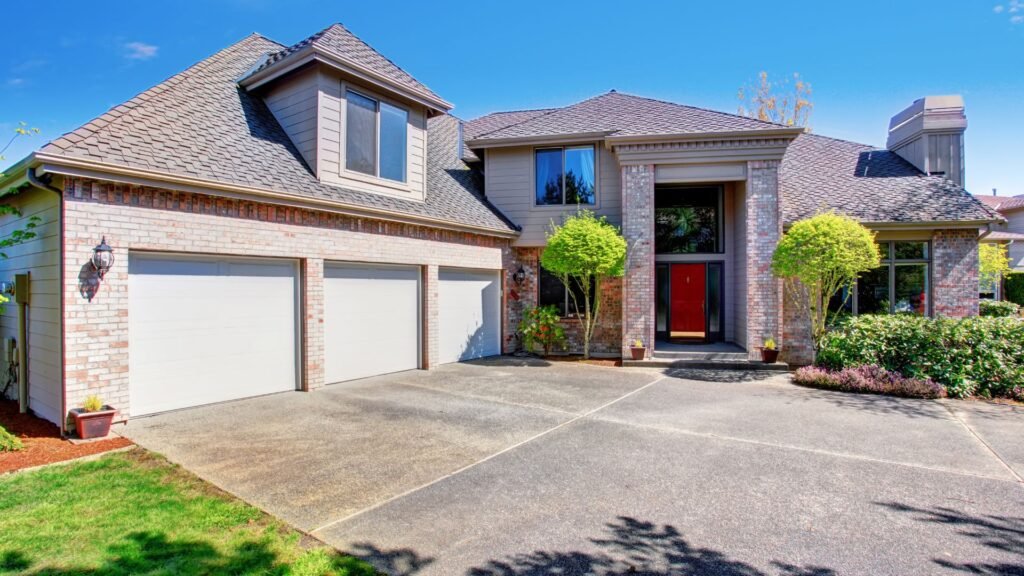
Hidden Costs You Should Know About
When planning a concrete driveway installation in NZ, most homeowners focus only on the square metre rate. But the real cost often includes several hidden extras that catch many people off guard. These are not always included in your initial quote, so understanding them upfront helps you set a more accurate budget and avoid unexpected bills.
Site Clearing Or Excavation
Before any concrete can be poured, the site needs to be prepared. If your driveway area has grass, trees, old pavement, or uneven ground, it will need to be cleared and levelled. Excavation work might include removing soil, tree roots, or debris. Depending on your location and the condition of the site, this can cost hundreds to thousands of dollars. The more complex the site, the more you’ll pay for prep work.
Drainage Installation
Poor drainage can lead to water pooling and damage to the driveway surface over time. To prevent this, contractors often need to install proper drainage systems such as channels, soak pits, or subsoil drainage. This step is critical for long-term durability, especially in areas that get heavy rainfall. If it’s not included in your original quote, expect to pay extra for materials and labour.
Council Permits
In some regions of New Zealand, you may need to get council approval before starting your driveway project, especially if you’re connecting to a public road or altering kerb access. Permit fees vary depending on the council and the scope of the project. Failing to get proper consent can result in fines or the need to redo the work, so it’s best to clarify permit requirements early in the process.
Reinforcement Mesh
To strengthen your driveway and reduce the risk of cracking, many contractors recommend using a steel reinforcement mesh. While it adds durability, it also adds cost. The price of the mesh and the extra labour to install it are often not included in the base quote. It’s a smart investment, but one that should be planned for financially.
Rubbish Removal
After the job is done, there’s usually leftover soil, broken concrete, packaging, or other waste on-site. Some contractors charge extra for removing this material, especially if large skip bins or truckloads are needed. It’s worth checking if clean-up and disposal are part of your quote or will be billed separately.
These hidden driveway costs are easy to miss but can quickly add up. If you’re planning a concrete driveway installation in NZ, ask for a fully itemised quote and clarify what’s included. That way, you’ll have a clearer picture of the total cost and fewer surprises during the project.
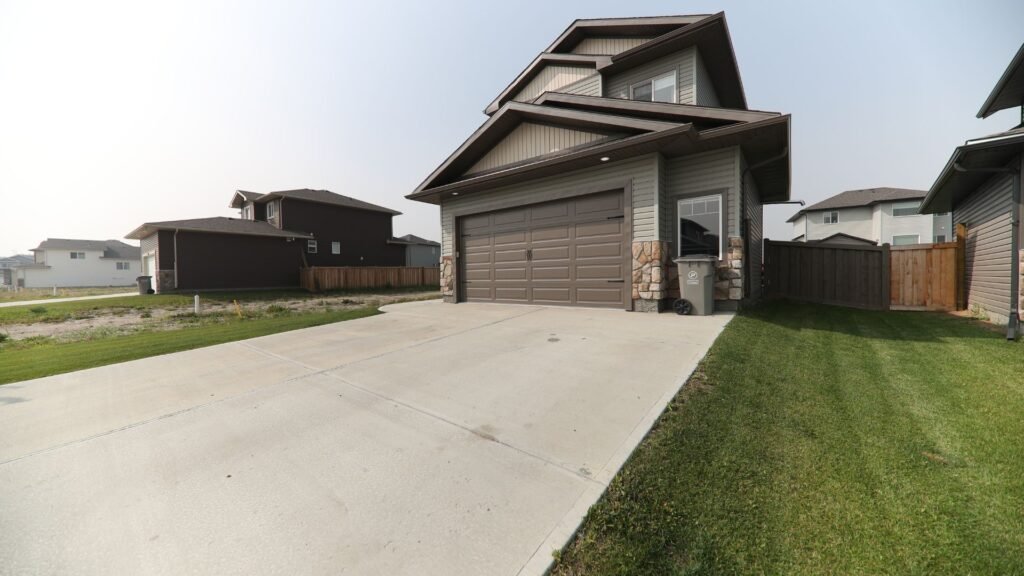
DIY Vs Hiring A Contractor
When planning a concrete driveway in New Zealand, one key decision is whether to take the DIY route or hire a professional contractor. Both options have pros and cons, but the right choice depends on your skills, budget, and the quality you expect.
Why Most People Hire Professionals
Most Kiwi homeowners choose to hire concrete contractors for good reason. Pouring and finishing a driveway isn’t just about mixing concrete and spreading it out. It requires technical knowledge, proper equipment, and experience to get a smooth, durable finish.
Professional contractors understand how to work with different site conditions, from sloped driveways to uneven soil. They follow proper curing methods, use the correct concrete mix, and ensure everything meets local standards. This reduces the chances of costly repairs later.
Hiring a contractor also saves time. Instead of spending days figuring out forms, mixes, and finishing techniques, professionals complete the job faster, and with a better result. For homeowners who want a clean, reliable outcome, hiring a concrete contractor in NZ is the safer choice.
Risks Of A DIY Concrete Driveway
While DIY might seem like a way to save money, it comes with real risks, especially if you don’t have experience with concrete work.
- Cracking: Improper mixing, pouring on a hot day, or poor site prep can cause cracks within months.
- Drainage Issues: A poorly sloped surface can lead to water pooling near your home, causing damage to foundations or driveways.
- Incorrect Mix Ratio: Too much water or cement changes the strength of the concrete, weakening the final result.
- Uneven Finish: DIY jobs often show trowel marks, surface flaws, or patches that wear unevenly over time.
Mistakes like these don’t just affect appearance, they can cut the driveway’s lifespan short, leading to expensive fixes or full replacements.
What To Check When Hiring A Contractor
If you decide to hire a concrete contractor in NZ, make sure you vet them properly. Not all contractors offer the same level of quality or reliability.
Here’s what to check:
- Reviews and Testimonials: Look at Google reviews or local trade directories. Honest feedback from past clients will reveal whether the contractor is trustworthy.
- Portfolio of Past Work: Ask to see photos of recent driveway projects. This shows you the quality of their finish and the variety of styles they’ve handled.
- Proof Of Insurance: A professional should have liability insurance. This protects you if something goes wrong on-site.
- Written Quote and Timeline: A clear quote should include all costs, labour, materials, site prep, and a realistic timeline for completion.
You don’t want to take chances on a large project like a driveway. Hiring the right contractor ensures your investment lasts and adds real value to your home.
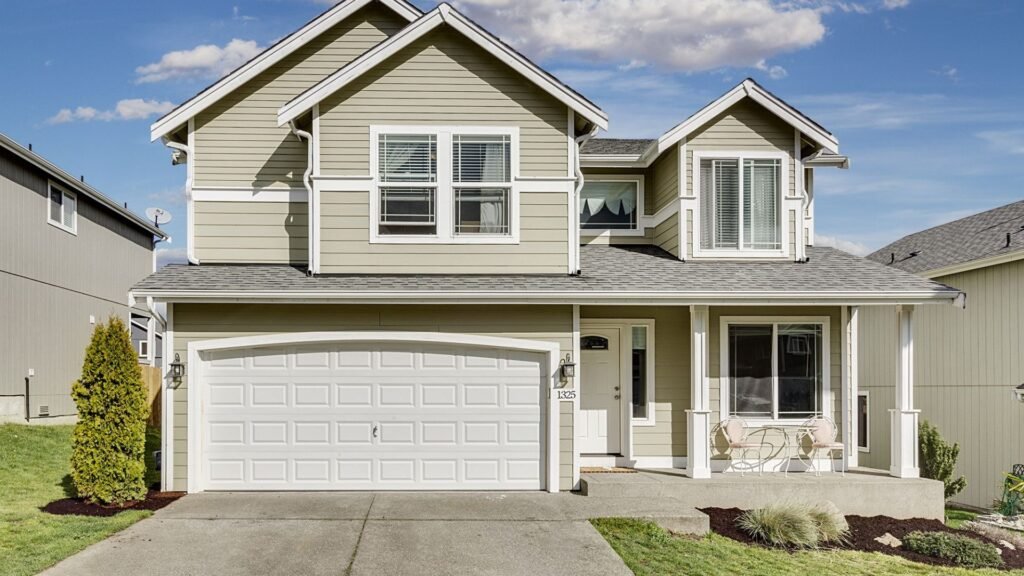
Tips To Save Money Without Cutting Corners
When it comes to installing a concrete driveway in New Zealand, costs can quickly add up. But you don’t need to sacrifice quality to stay on budget. With a few smart choices, you can reduce your total spend without cutting corners. These tips are practical, safe, and often recommended by experienced contractors across the country.
Get Multiple Quotes
Don’t settle for the first quote you receive. Reach out to at least three local contractors and compare not just prices, but what’s included. Some quotes may look cheaper upfront, but leave out key services like site preparation or waste removal. Others might include a longer warranty or higher quality materials. By comparing quotes side by side, you’ll get a clearer picture of fair pricing and spot red flags like unusually high or low estimates.
Getting multiple quotes also gives you leverage. If one contractor knows you’re considering others, they may offer a better rate or throw in extras like sealing or edging at no additional cost. It’s one of the simplest ways to save on driveway costs in NZ.
Choose A Simple Design
Decorative finishes like exposed aggregate or stamped patterns look great, but they come with higher material and labour costs. If your goal is functionality and durability, a plain concrete finish may be all you need. It’s easier to install, requires less curing time, and costs less per square metre.
You can always add texture or colour later with staining or surface coatings once your budget allows. Choosing a basic design upfront gives you a reliable surface without pushing your project over budget.
Install During Off-Peak Seasons
Spring and summer are the busiest times for driveway installations in New Zealand. During these months, contractors are booked out, and prices may rise due to high demand. If your timeline allows, aim for installation in early autumn or late winter. Some contractors offer discounted rates during slower seasons to keep their crews busy.
Off-peak installation not only reduces your labour costs but can also mean shorter wait times and more flexible scheduling. Just be sure the weather forecast supports proper curing conditions, dry, mild days are ideal.
Prepare The Site Yourself (If Possible)
Labour is one of the biggest drivers of concrete driveway costs. You can reduce this by doing some of the prep work on your own, provided it’s safe and allowed by your contractor. Tasks like clearing grass, removing small trees or shrubs, or levelling loose soil can often be handled without special equipment.
Check with your contractor first to avoid doing something that could affect the base layer or drainage. But if they give the green light, you could save hundreds just by spending a few hours prepping the area.
By following these tips, you can get a cheap concrete driveway in NZ that still performs well for decades. Saving money doesn’t mean cutting corners, it means making smart decisions at every step. Whether you’re building your first driveway or replacing an old one, keeping quality high and costs low is possible when you plan ahead.
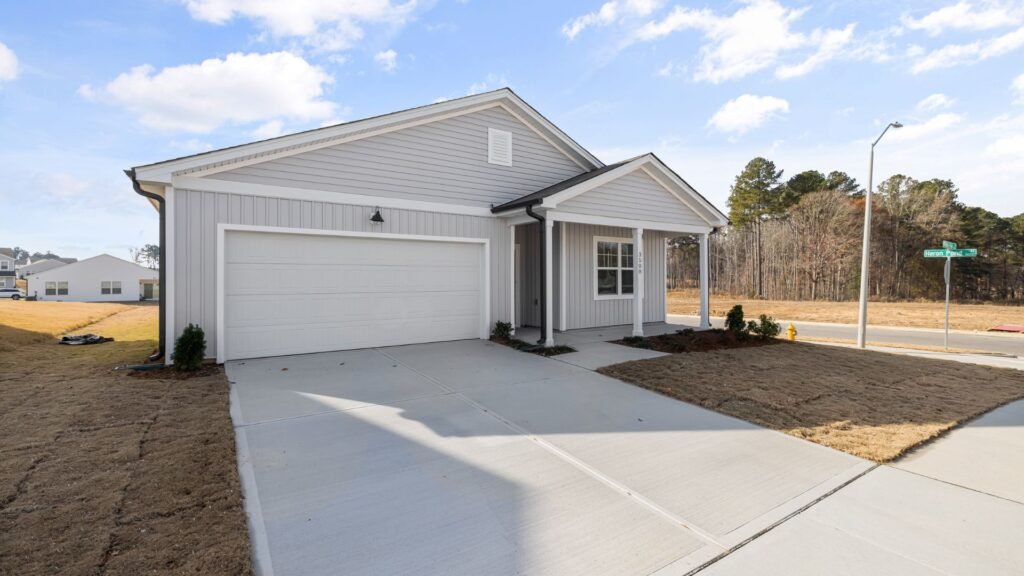
Real-Life Case Studies: What Homeowners Really Paid For Concrete Driveways In NZ
When you’re planning a concrete driveway project, knowing the average cost is helpful, but hearing real stories from everyday homeowners makes the numbers more relatable. Below are two actual examples from different parts of New Zealand. These stories not only show what people paid but also what decisions helped them save money or get better value. This kind of transparency builds trust and gives you a more practical sense of what to expect.
Jane In Auckland: $9,000 For A 60m² Exposed Aggregate Driveway
Jane lives in a suburban area of Auckland and wanted a driveway that looked clean but had a textured finish. After getting quotes from three contractors, she decided to go with exposed aggregate concrete for its grip and decorative look. The total cost came to $9,000 for a 60 square metre driveway, which included:
- Site preparation and minor excavation
- Exposed aggregate finish
- Drainage installation to prevent pooling
- A non-slip sealer to protect the surface
While her choice wasn’t the cheapest option, Jane prioritised durability and curb appeal. The project took four days, and the contractor handled everything, including council checks. She says the new driveway has improved her property’s value and made parking easier.
Mike In Christchurch: Saved $1,200 With A DIY Site Prep
Mike, a Christchurch homeowner, had a tight budget but still wanted a long-lasting concrete driveway. His quote for a plain 40m² concrete driveway came in at $7,800, but he managed to lower that by doing part of the work himself. With basic tools and help from a friend, Mike handled the initial site prep, clearing debris, levelling the ground, and marking out the area.
By doing this himself, he cut out around $1,200 in labour costs. His final invoice was just over $6,500. The contractor appreciated the prep work and finished the pour and smoothing in two days. Mike was happy with the result and mentioned that spending a weekend on preparation was worth the savings.
Why These Examples Matter
These stories show that driveway costs can vary based on your choices. Jane’s premium finish came with a higher price tag, while Mike reduced his costs with hands-on effort. Both made informed decisions based on what mattered most to them, appearance, budget, and involvement. Including real experiences like these helps you see beyond the price per square metre and understand what drives the final quote.
If you’re planning your own concrete driveway, think about your priorities. Do you want a high-end look, or are you aiming to stay under budget? These decisions will shape your final cost. Always request detailed quotes, compare contractors, and ask about ways to save, just like Mike and Jane did.
Ready to upgrade your driveway? Visit us to get expert advice, honest pricing, and fast quotes for concrete driveways across NZ.
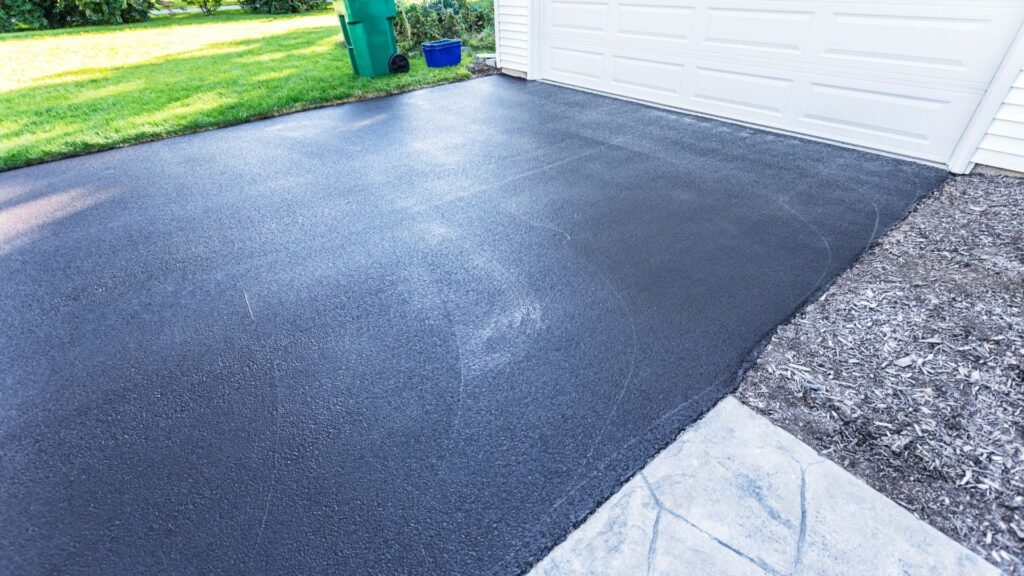
FAQs: About Concrete Driveways Cost In NZ
How much does a concrete driveway cost in NZ in 2025?
The average cost ranges from $120 to $200 per square metre. Plain concrete is the most affordable, while coloured and exposed aggregate options sit at the higher end. Total cost depends on size, site access, design, and contractor rates.
What factors influence the price of a concrete driveway?
Key factors include the driveway size, thickness of the concrete, type of finish, site preparation, location, drainage needs, and labour rates. Decorative finishes and sloped sites usually increase the cost.
Is it cheaper to use plain concrete instead of decorative finishes?
Yes. Plain concrete typically starts at $120/m², while coloured or exposed aggregate finishes can go up to $200/m². Choosing a simple finish can save you hundreds or even thousands depending on your driveway size.
Can I install a concrete driveway myself to save money?
While possible, DIY concrete driveways come with risks such as cracking, poor drainage, or uneven surfaces. Hiring a qualified contractor ensures proper installation and long-term durability.
How long does a concrete driveway last in NZ?
A well-installed concrete driveway can last 25–30 years or more. Factors that affect lifespan include quality of materials, weather exposure, maintenance, and usage levels.
Do I need council approval to install a concrete driveway?
In most cases, minor residential driveways don’t require council consent. However, if you’re altering kerb access or drainage, it’s best to check with your local council first.
What’s the best time of year to install a concrete driveway in NZ?
Spring and summer are ideal due to dry, mild weather. Installing during wet or cold months can increase curing time and the risk of surface defects.
Are there hidden costs I should expect?
Yes. Common extras include excavation, site levelling, drainage, reinforcement mesh, rubbish removal, and permits. Always request an itemised quote to avoid surprises.
How can I save money on my concrete driveway?
You can reduce costs by getting multiple quotes, opting for a simple design, preparing the site yourself (if safe), and installing during off-peak seasons.
What’s better: concrete, asphalt, or pavers for driveways?
Concrete is long-lasting and low maintenance. Asphalt is cheaper upfront but wears faster. Pavers offer a premium look but cost more and need more upkeep. Choose based on budget, appearance, and durability needs.
Conclusion
Concrete driveways remain one of the most practical and durable options for homeowners across New Zealand. Whether you’re working with a tight budget or planning a full property upgrade, knowing the average cost—ranging from $120 to $200 per square metre—helps you set realistic expectations. Several factors influence the final price, including driveway size, design choices, site conditions, and material finishes. It’s always smart to plan ahead, compare quotes, and avoid unnecessary extras that can inflate your costs. While choosing a simple finish and preparing the site yourself can help reduce expenses, getting professional advice ensures the job is done right the first time. Thinking of upgrading your driveway? Get in touch with a local concrete specialist for a free quote and expert guidance tailored to your project.

